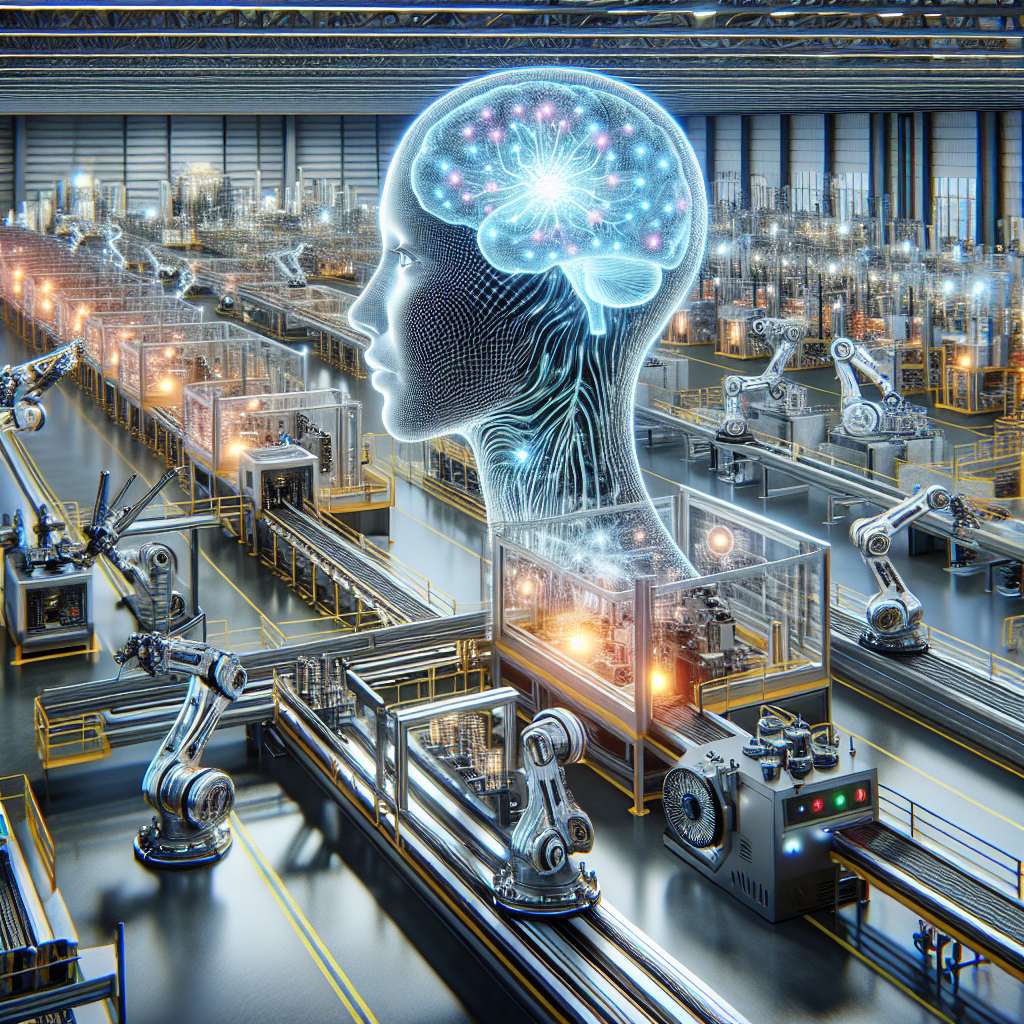The Role of AI in Adaptive Manufacturing
Artificial Intelligence (AI) has been revolutionizing the manufacturing industry in recent years, playing a key role in driving efficiency, productivity, and innovation. One of the most significant applications of AI in manufacturing is in adaptive manufacturing, where AI technologies are used to optimize production processes and respond to changes in real-time. In this article, we will explore the role of AI in adaptive manufacturing and how it is transforming the industry.
What is Adaptive Manufacturing?
Adaptive manufacturing is a manufacturing approach that utilizes real-time data and analytics to continuously optimize production processes. It involves the use of advanced technologies such as AI, machine learning, and data analytics to monitor and adjust manufacturing operations in response to changing conditions. This allows manufacturers to improve efficiency, reduce costs, and enhance product quality.
The traditional manufacturing model relies on fixed processes and predetermined workflows, which can be rigid and inflexible. In contrast, adaptive manufacturing is dynamic and responsive, allowing manufacturers to quickly adapt to changing market demands, supply chain disruptions, and other external factors. By leveraging AI and other advanced technologies, manufacturers can make data-driven decisions in real-time, enabling them to optimize production processes and improve overall performance.
The Role of AI in Adaptive Manufacturing
AI plays a crucial role in adaptive manufacturing by enabling manufacturers to analyze large volumes of data, identify patterns and trends, and make informed decisions based on real-time insights. AI technologies such as machine learning, neural networks, and natural language processing can process and analyze data faster and more accurately than human operators, allowing manufacturers to optimize production processes and improve efficiency.
One of the key applications of AI in adaptive manufacturing is predictive maintenance. By analyzing historical data from sensors and other sources, AI algorithms can predict equipment failures before they occur, allowing manufacturers to schedule maintenance proactively and prevent costly downtime. This not only reduces maintenance costs but also extends the lifespan of equipment and improves overall reliability.
AI is also used in quality control and defect detection, where machine learning algorithms can analyze images, videos, and sensor data to detect defects and anomalies in real-time. By automating quality control processes, manufacturers can improve product quality, reduce waste, and minimize rework, leading to cost savings and improved customer satisfaction.
Another important application of AI in adaptive manufacturing is demand forecasting and production planning. By analyzing historical sales data, market trends, and other factors, AI algorithms can predict demand for products and optimize production schedules accordingly. This allows manufacturers to avoid stockouts, reduce inventory costs, and improve customer service levels.
In addition to these applications, AI is also used in supply chain management, logistics, and inventory optimization in adaptive manufacturing. By analyzing data from suppliers, transportation networks, and warehouse operations, AI algorithms can optimize supply chain processes, reduce lead times, and improve overall efficiency. This enables manufacturers to respond quickly to changes in demand, minimize stockouts, and reduce supply chain costs.
Overall, AI is a powerful tool for manufacturers looking to adopt adaptive manufacturing practices and stay competitive in today’s fast-paced market. By leveraging AI technologies, manufacturers can optimize production processes, improve product quality, reduce costs, and enhance customer satisfaction, leading to increased profitability and growth.
FAQs
Q: What are the benefits of using AI in adaptive manufacturing?
A: There are several benefits of using AI in adaptive manufacturing, including improved efficiency, reduced costs, enhanced product quality, and better decision-making. AI technologies can help manufacturers optimize production processes, predict equipment failures, automate quality control, forecast demand, and optimize supply chain operations, leading to increased profitability and competitiveness.
Q: How can manufacturers implement AI in adaptive manufacturing?
A: To implement AI in adaptive manufacturing, manufacturers should start by identifying their specific business goals and challenges. They should then assess their data infrastructure, capabilities, and resources to determine the best AI technologies and tools for their needs. Manufacturers can work with AI vendors, consultants, or in-house experts to develop and deploy AI solutions that address their unique requirements and objectives.
Q: What are some examples of AI applications in adaptive manufacturing?
A: Some examples of AI applications in adaptive manufacturing include predictive maintenance, quality control, demand forecasting, production planning, supply chain management, and inventory optimization. AI technologies such as machine learning, neural networks, and natural language processing are used to analyze data, detect patterns, and make informed decisions in real-time, enabling manufacturers to optimize production processes and improve overall performance.

